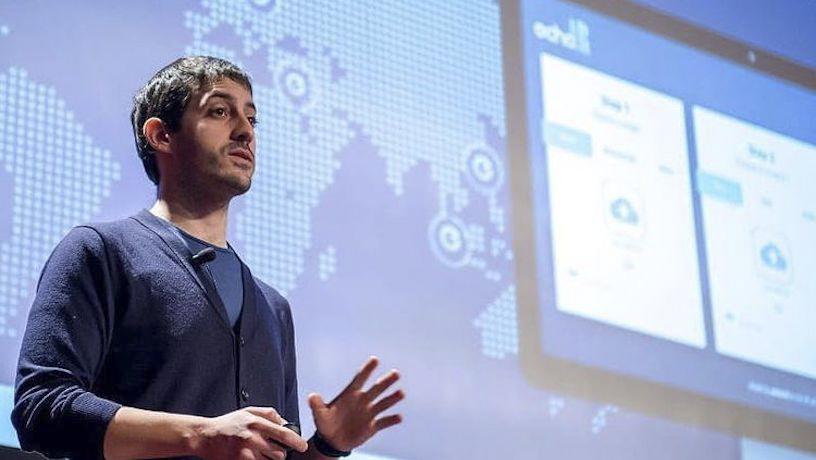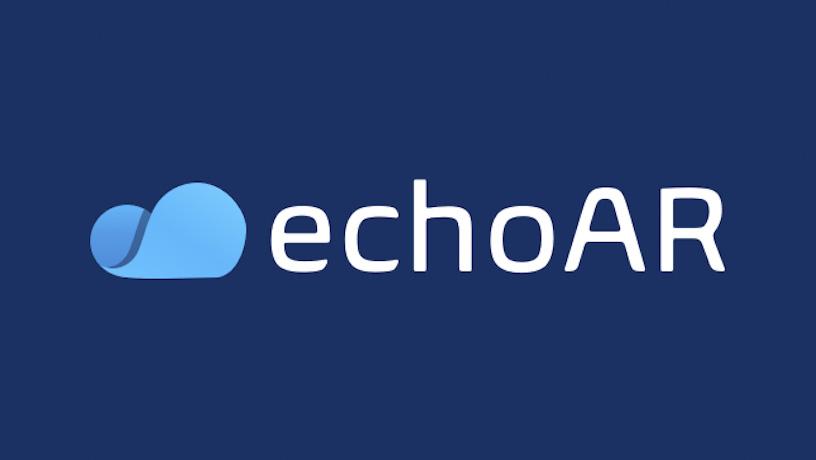Starting Up Right
Candid Conversations with Columbia Entrepreneurs

CEO Alon Grinshpoon shared his advice for rising entrepreneurs in a new AMA from Columbia Engineering Entrepreneurship.

A game-changing, industry-disrupting idea isn’t enough: launching a viable new company also requires identifying marketplace gaps and an ability to impress investors, in addition to an unquestionably great product.
To give rising entrepreneurs an inside look at the central considerations of starting a company, Columbia Engineering Entrepreneurship recently launched “Ask Me Anything”—a new series of Q&A interviews with special guests from different fields and disciplines.
Kicking it off was CEO Alon Grinshpoon (MSCS’18), founder and CEO of the augmented reality/virtual reality platform echoAR. Headquartered at the SoHo Columbia Startup Lab in New York City, his company makes it simple for creators and developers to build and leverage 3D content via the cloud, and has raised over a million dollars in venture capital thus far.
This is an edited excerpt of the conversation.
Q: How did your academic interests at Columbia help you formulate this startup idea? And how did you decide to make the leap?
A: While completing my master’s in computer science with Professor Steven Feiner, my thesis was all about augmented reality for surgeries: We took information from MRIs and put it on these smart glasses for physicians to basically see the inside of the patient in real time.
It was an amazing experiment, particularly as an engineer walking into an operating room and scrubbing into surgery. That was my first understanding that we were able to identify a problem in the space beyond just the research, which was cool but had some technical difficulties.
EchoAR is all about solving [those difficulties]. We started talking to other developers building AR/VR applications in healthcare, games and digital media about a problem that exists in every space. Try to think about the things you’re passionate about, and find the thing that isn’t working well or that you want to optimize, and you can eventually create a startup out of that.
Q: How did you leverage various resources at Columbia to develop your startup?
A: Columbia has so many resources for everyone who wants to be an entrepreneur—whether it’s the Venture Competition or the meet-ups like this one or the Startup Lab that we utilize heavily—a WeWork space in SoHo that the university subsidizes for startups to use. The technology transfer office helps people submit intellectual property and IP protection and stuff like that.
What’s cool about Columbia is the entrepreneurial mindset that comes from staff, students and also professors. If you’re in a lab working on research, know that your professor is probably in some capacity involved with a company like my professor was, and highly happy to help you explore any entrepreneurial path.
Another resource that’s really important is the NYC Media Lab, an organization from a consortium of universities in New York, which gives a lot of grants—literally free money—for students building startups in AI, machine learning, AR/VR, emerging tech, etc. So if you have an idea you want to explore and you have a good team, you can apply to any of the programs there. That’s a really cool way to get funding and a head start, and basically de-risk your startup. When you go to investors—they’ll see that you’re good to go.
If you’re in a lab working on research, know that your professor is probably in some capacity involved with a company like my professor was, and highly happy to help you explore any entrepreneurial path.
Q: Do you feel like you really built up an AR skillset before you finally took the plunge, or did you just follow your curiosity and learn from your mistakes as you went?
A: It’s a mix of both. Definitely the startup life is filled with mistakes, most of the things we’re doing are mistaken and everything is an iterative process to learn what you need to do because most of it you’ve never done. Before I started this thing, I did make sure I had a really solid founder-market fit, which means I was definitely a technical master when it comes to AR/VR and the cloud. When addressing investors one of the key things to show is that we’re the right people to do what we’re doing. That’s a story you need to craft as well—why are you the person to do this? The most successful startups are the ones that have that fit, where it’s obvious the people on this venture really know what they’re doing.
Q: What do you wish someone had told you when you were starting out?
A: I wish I’d had the opportunity to talk to someone back in the day to flatten that learning curve and understand what to do to become an entrepreneur much faster. Transitioning the mindset from being an engineer to being a founder is pretty challenging. Right now, I’m the CEO of the company so I do a lot of the non-technical aspects and that’s a big transition. One of the key things about entrepreneurship is the need to talk to as many people as you can, because someone probably went through what you’re going through and can help.
